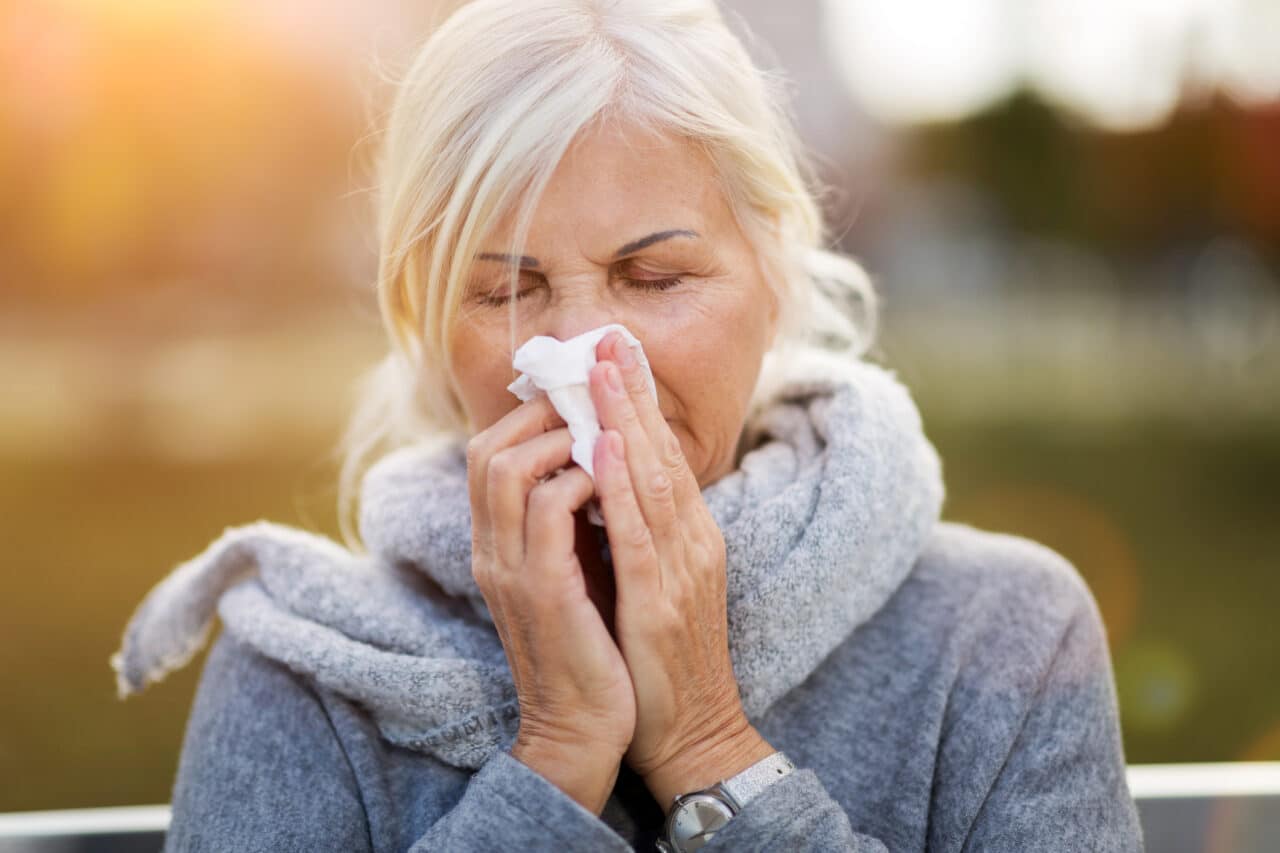Though allergies are commonly associated with springtime, many still experience symptoms in the winter months. If you deal with winter allergies, it can be helpful to know what triggers them as well as how they can be managed.
Common Winter Allergy Causes

Pollen levels are typically low in the winter, so it’s mostly indoor allergens that are causing your symptoms like nasal congestion, sneezing and watery, itchy eyes. Common indoor triggers include:
- Animal dander
- Indoor mold
- Dust mites
- Cockroach droppings
Why Are My Allergies Increasing in the Winter?
If you notice an uptick in allergy or asthma symptoms in the winter, it’s likely that you’re allergic to one of the above triggers. Additionally, certain wintertime behaviors may exacerbate your symptoms.
People tend to spend more time indoors with colder temperatures and shorter days. Turning on heaters can also make the indoors even drier. This can irritate your nose, which is already inflamed due to your allergies.
Steps to Minimize Your Allergy Symptoms
It might not be possible to rid yourself completely of winter allergies, but you can take steps at home to minimize your symptoms. Options include:
- Using a humidifier. This can reduce dryness in the air and help with irritation. Just make sure not to have it too humid (maximum of 50%), as dust mites and mold grow faster in high humidity.
- Clean regularly. Cleaning, dusting and vacuuming your home can help remove allergens from building up.
- Wash sheets. Do this weekly in hot water to kill dust mites. Also, consider using hypoallergenic sheets and pillowcases.
- Bathe your pets. If you have pets, bathe them weekly to minimize dander. Also try to keep your pets out of your bedroom or in the room of anyone else with allergies.
- Get moving outdoors. Some research has noted that recreational winter exercise outdoors can reduce allergic-airway inflammation and improve allergy symptoms. Try going for walks in your neighborhood or somewhere like Glenn Creek Nature Preserve or other scenic Georgia trails.
Are My Symptoms a Cold or Allergies?
Because colds and other viruses are more common in the winter and have some overlapping symptoms, you may be unsure what is causing your symptoms. However, there are some key differences between the two. Colds and viral infections don’t last more than a couple of weeks, while allergies continue as long as you’re exposed to a trigger. Similarly, symptoms like body aches and fever are common with illnesses but are not usually seen in allergies.
If you are unsure, visit a doctor. If allergies are suspected, they may refer you to an allergist for further testing and to help determine what treatments may work for you.
For more information on winter allergies or to schedule an appointment, contact ENT of Georgia North today.